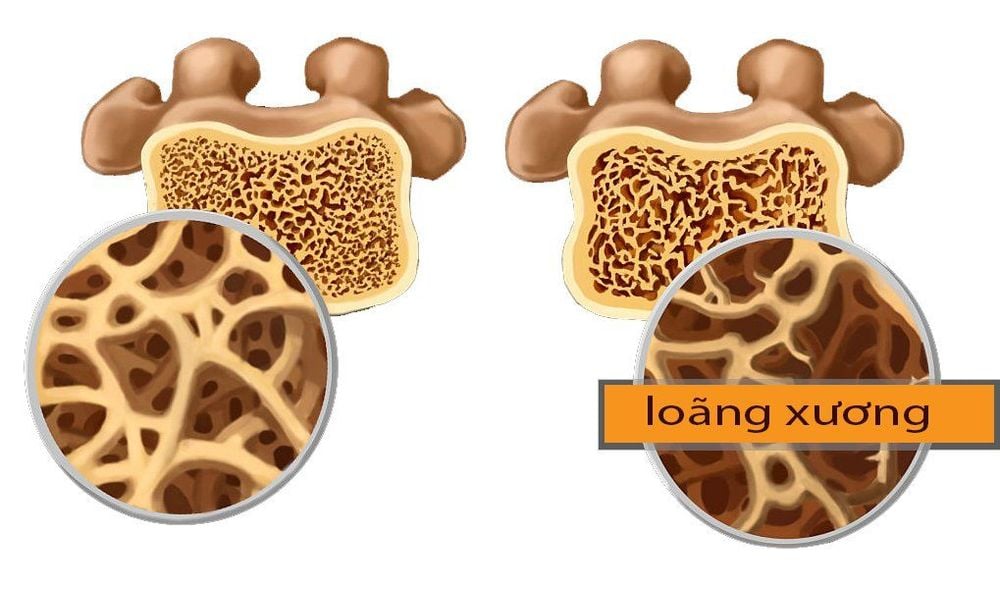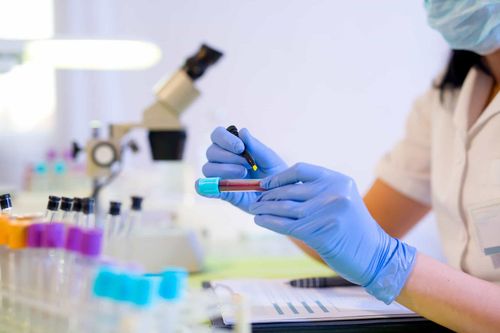This is an automatically translated article.
The article was professionally consulted by Master, Doctor Do Thi Hoang Ha - Doctor of Biochemistry - Laboratory Department - Vinmec Hai Phong International General HospitalCalcium is considered the most abundant mineral and one of the most important in the body. Our bodies need calcium for the growth and repair of bones and teeth, for the transmission of nerve impulses, for normal muscle contraction, for blood clotting and for heart function. The performance of tests to see if there are
1. Why is it necessary to get tested for calcium deficiency?
Normally, blood calcium levels always fluctuate within a certain small range because it is controlled by the body by a counter-regulatory mechanism. When the blood calcium level is low (hypocalcemia), the body will increase the secretion of parathyroid hormone and inhibit the production of calcitonin hormone, leading to the release of calcium from the bones into the blood, increasing the concentration of calcium in the blood. and teeth will be affected. When blood calcium levels are high (hypercalcemia) leading to inhibition of parathyroid hormone as well as increased secretion of calcitonin hormone causing increased absorption of calcium in the bones, and excess calcium is stored in the bones, a small part is eliminated from the body. body through urine and feces. Most people with low or slightly higher calcium levels do not have any unusual symptoms. Symptoms appear only when blood calcium levels are too low or too high.
You should have a calcium test for several reasons:
Tests after a kidney transplant; To find the cause of an abnormal electrocardiogram; To check for problems with the parathyroid glands or kidneys, certain types of cancer and bone problems, or inflammation of the pancreas (pancreatitis); To see if the symptoms of muscle pain, cramps, twitching and tingling in the fingers and around the mouth were caused by too low calcium in the blood. To see if the symptoms of weakness, lack of energy, not wanting to eat, nausea and vomiting, constipation, increased urination, abdominal pain or bone pain are caused by too much calcium in the blood. As part of routine blood tests. Test for calcium deficiency in pregnant women. Test for calcium deficiency is not in children.

Xét nghiệm thiếu canxi trong kiểm tra sức khỏe tổng quát
2. What test is done to detect calcium deficiency?
Blood tests will likely show normal blood calcium levels, as the body will have mechanisms to regulate calcium distribution to ensure it is enough in the blood to serve essential processes. If your blood calcium is low, chances are you're in danger.
A bone density test can indirectly suggest whether you are getting enough calcium, as it shows how thick or thin your bones are. But even this is not always accurate, as bone density is determined by at least two things. One is getting enough calcium, and the second is muscle strength. You can get the calcium you want, but if you stay in bed all day, your bones will thin.
Therefore, while a bone density test can suggest potential calcium deficiency, it cannot confirm this condition with certainty.

Loãng xương do thiếu canxi
3. Test for calcium deficiency, what should the patient do?
Before taking the test for calcium deficiency, you should note the following:
Do not take calcium supplements 8-12 hours before the blood calcium test. Your doctor will tell you what not to eat or drink before the test; Many drugs can affect the results of this test. Tell your doctor about all over-the-counter and prescription medications you take. As you may not know, calcium doesn't just help build strong bones and teeth, and getting enough calcium is extremely important. Like the minerals potassium and sodium, calcium is important for cell function throughout the body. Every muscle contraction requires calcium to go in and out of cells, it is also necessary for nerve conduction, is an enzyme-binding substrate in some enzymatic reactions, is a component of blood clotting, and operate almost every system in the body.

Canxi có vai trò quan trọng đối với con người
4. The meaning of blood calcium test
You should be aware that laboratories may have different results regarding the normal range of blood calcium values. Essentially, a normal concentration of calcium is about 8.8-10.4 mg per deciliter (mg/dl) or 2.2-2.6 millimoles per liter (mmol/l). Blood calcium values will be lower in older people.
Testing for calcium deficiency in pregnant women and children is very important because this is the period when calcium needs to be provided and maintained stably. Sometimes if bone density is low, the culprit could be vitamin D deficiency. Vitamin D is a calcium transporter, which means your body needs it to use the calcium you get through the digestive tract. You can (and should) try to get enough calcium from food instead of taking medicine.

Xét nghiệm thiếu canxi không ở bà bầu là việc làm cần thiết
Vinmec International General Hospital is one of the hospitals that not only ensures professional quality with a team of leading medical doctors, modern equipment and technology, but also stands out for its examination and consultation services. comprehensive and professional medical consultation and treatment; civilized, polite, safe and sterile medical examination and treatment space. Customers when choosing to perform tests here can be completely assured of the accuracy of test results.
Customers can directly go to Vinmec Health system nationwide to visit or contact the hotline here for support.
SEE ALSO:
Quantification of calcium in urine Guidelines for calcium supplementation for nursing babies Find out information about blood calcium quantification














